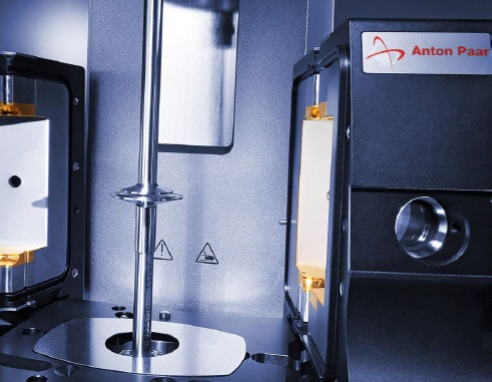The present application note explains how to calculate the molar mass Mw based on the Zero-Shear Viscosity value measured by a Frequency Sweep. The Zero-Shear Viscosity can be evaluated by applying the Carreau-Yasuda Regression to a Frequency Sweep. The tests were carried out on an MCR rheometer equipped with an Electrical Temperature Device.
Introduction
The present application note explains how to calculate the molar mass Mw based on the Zero-Shear Viscosity value measured by a Frequency Sweep. The Zero-Shear Viscosity can be evaluated by applying the Carreau-Yasuda Regression to a Frequency Sweep.
Experimental Setup
A technical, iso-tactic Polypropylene melt i-PP was measured using an MCR rheometer equipped with an Electrical Temperature Device consisting of basis plate and actively heated hood. The actively heated hood is based on a combination of radiation plus convection (N2,g) heating to prevent polymer degradation and to ensure precise and horizontally/vertically gradient free measurements at the set temperature of 200 °C.
The parallel plate measuring system PP25 was chosen and the measuring gap was set to 1 mm. To ensure a constant shear rate throughout the measuring gap we recommend using the TruGap measuring system CP25-3/TG (above 1000 Pas) or CP35-3/TG (below 1000 Pas) in combination with an MCR rheometer.
With respect to the linear visco-elastic range LVE-R a strain of 5 % was chosen. The angular frequency was varied logarithmically between 628 s-1 and 0.1 s-1 (100 Hz and 0.0159 Hz) with 5 measuring points per decade.


 Want to know more? Click here to read the full article.
Want to know more? Click here to read the full article.
.jpg)
This information has been sourced, reviewed and adapted from materials provided by Anton Paar GmbH.
For more information on this source, please visit Anton Paar GmbH.